I want to read xml file and set its value into a variable. for example ,
qhr2400.xml
<XML>
<OPERATION type="1">
<TABLENAME>TABLE</TABLENAME>
<ROWSET>
<ROW>
<CLLI>518</CLLI>
<COLLECTION_DATE>06/04/20 00:45:00</COLLECTION_DATE>
<SS7RT>99</SS7RT>
<AQPRT_1>84</AQPRT_1>
<L7RMSUOCT_01>80</L7RMSUOCT_01>
<L7RMSUOCT_02>80</L7RMSUOCT_02>
</ROW>
</ROWSET>
</OPERATION>
</XML>
I want its value in a variable like $CLLI =518, $COLLECTION_DATE = 06/04/20 00:45:00, SS7RT = 99.. so that I can use these values further to write an insert query.
Basically I want to load this .xml data into a database table.
this is what I tried.
read_xml.sh
awk 'NF==1 && (/ +<[a-zA-Z]+>/ || /^<[a-zA-Z]+>/ || / +<\/[a-zA-Z]+>/){
next
}
{
sub(/^ +/,"")
gsub(/\"|<|>/,"",$0);
sub(/\/.*/,"");
if($0){
print
}
}
' qhr2400.xml
Output
OPERATION type=1
CLLI5018
COLLECTION_DATE06
SS7RT99
AQPRT_184
L7RMSUOCT_0180
L7RMSUOCT_0280
Any help is appreciated.
Thanks!
